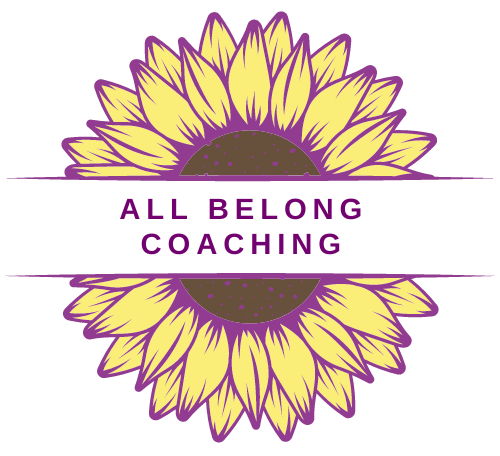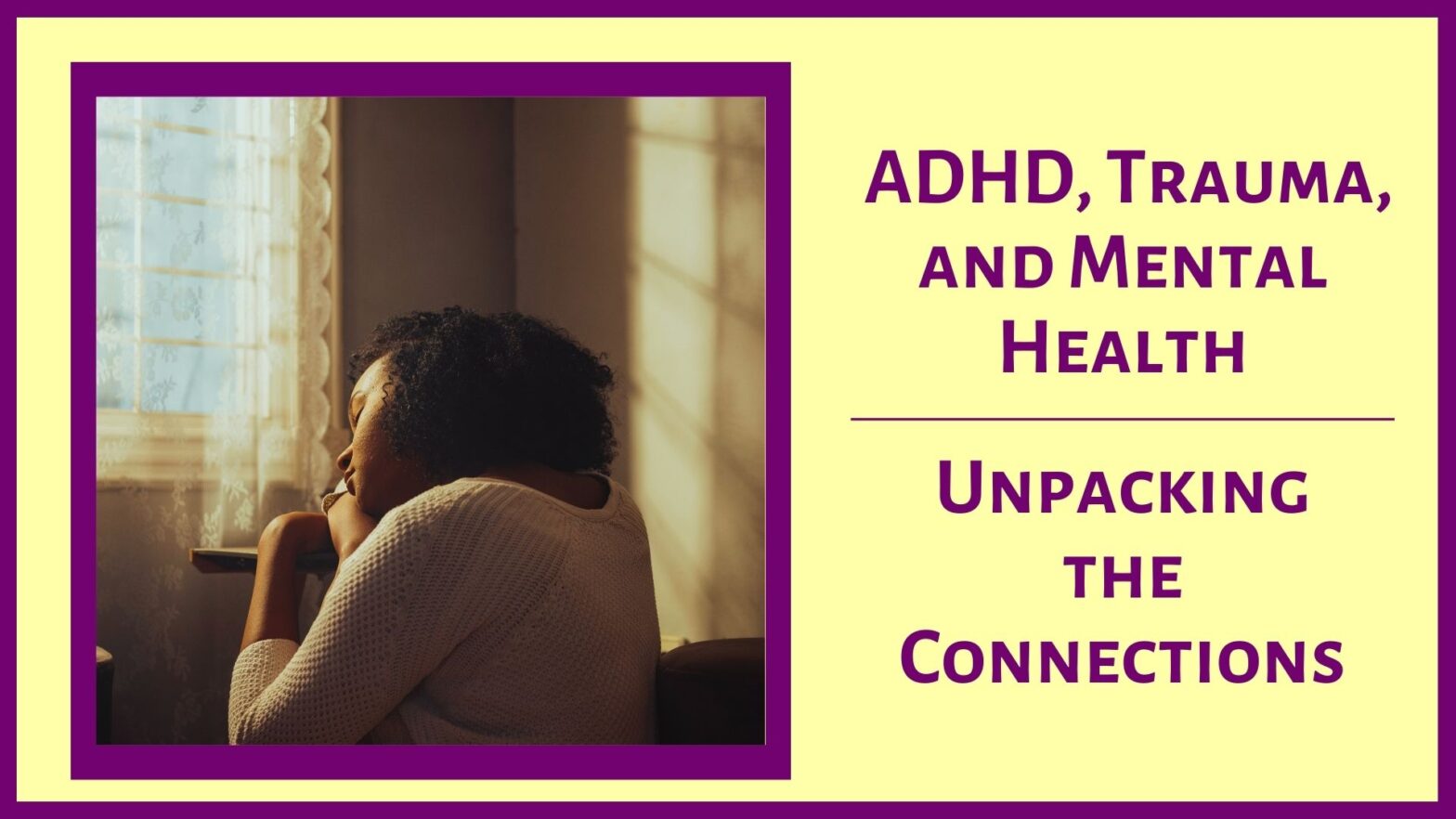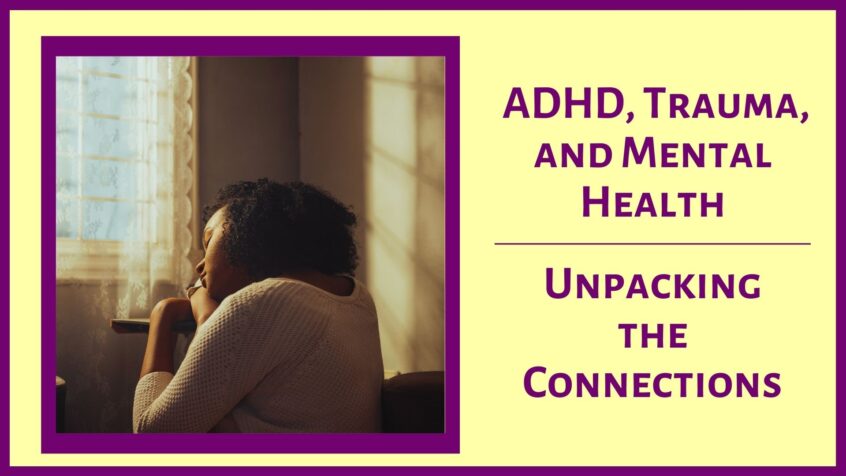ADHD, Trauma, and Mental Health
Unpacking The Connections
Here’s the truth: ADHD doesn’t show up all by itself. It’s often wrapped up with trauma and mental health stuff in ways that are messy, complicated, and very real. And when we start to understand how those pieces connect, it can be a total game-changer—offering us more clarity, more compassion for ourselves, and better tools to actually get the support we need.
For a lot of us with ADHD, it’s not just about distraction or executive function struggles. There’s often way more going on under the surface—layers of emotional pain, old wounds, and mental health challenges that get all tangled up like a messy ball of yarn you don’t even remember starting. And you have NO idea what string to start with.

Life with ADHD Can Be a Lot
ADHD doesn’t just make it hard to focus. It can make daily life feel like a never-ending game of catch-up—with a side of “what’ the f*^k is wrong with me?” on loop.
When we constantly miss deadlines, forget important stuff, get called out or shut down, or just feel like we can’t get it together—it takes a toll. Over time, those experiences build up. And while they might not look like “big-T” trauma, they can still leave emotional bruises that don’t fade easily.
This kind of chronic stress, shame, and invalidation is sometimes called “little-t” trauma—but there’s nothing little about the impact it can have on your nervous system, your sense of self, or your ability to trust your own brain.
Trauma Doesn’t Always Look Like You Think It Does
When people hear the word “trauma,” they often think of one major event.
But trauma can also come from smaller, repeated experiences—especially when you grow up feeling misunderstood, punished for things you couldn’t control, or constantly on edge trying to keep up in a world that’s not designed for ADHD brains.
And for folks with ADHD, trauma can show up in ways that get missed or misread:
-
Zoning out? That might actually be dissociation.
-
Big emotional reactions? That might be your nervous system stuck in fight-or-flight.
-
Difficulty trusting yourself? That might be the result of years of criticism or shame.
It’s all connected.
And if any of this feels familiar, you’re not overreacting—you’re responding in very human ways to a lifetime of unmet needs and invisible struggles.


ADHD and Mental Health: A Complicated Relationship
Let’s face it – ADHD often brings some friends along for the ride—like anxiety, depression, or even PTSD.
Sometimes those things are co-occurring, and sometimes they’re the result of years of trying to survive with an ADHD brain in a world that keeps handing out the message: “You’re too much and not enough, all at once.”
Let’s break that down a bit:
-
Anxiety might come from constantly second-guessing yourself or feeling like you’re always one mistake away from everything falling apart.
-
Depression might follow after years of internalizing the idea that you’re lazy or incapable.
-
Low self-worth is almost inevitable when your efforts don’t match the results people expect—or demand—from you.
Mental health struggles aren’t always a separate thing from ADHD.
Sometimes they’re a signal that your needs haven’t been met for a really long time.
This is why treating ADHD without addressing mental health (and vice versa) can feel like putting a Band-Aid on a broken leg.
So… What Helps?
The path forward isn’t just about coping—it’s about reclaiming your story and giving yourself the care you may have never been taught to give.
Here are a few pieces of the healing puzzle:
-
Name the pain: Whether it’s from childhood, school, work, or relationships, your experiences matter.
-
Validate your neurodivergence: ADHD isn’t a flaw—it’s a different wiring that needs different supports.
-
Therapy & coaching: Trauma-informed professionals and ADHD coaches (like me!) can help you make sense of the overlaps.
-
Nervous system care: Think regulation tools like movement, breathwork, music, or time in nature.
-
Community: Find people who get it—spaces where you don’t have to mask or explain your brain.


You’re Not Broken—You’ve Been Doing Your Best
If reading this has stirred up a lot of emotions, you’re not alone.
Maybe you’re realizing how many of your struggles make sense now.
Maybe you’re grieving the support you didn’t get.
Maybe you’re just tired.
That’s okay.
ADHD and trauma and mental health aren’t easy things to navigate.
But you’ve been doing the best you can with what you’ve had—and that matters. You are not broken.
You are not a lost cause.
You’re a human with a beautifully wired brain that just needs care, context, and a little more space to be exactly who you are.
You’re allowed to take up space.
You’re allowed to rest.
And you’re allowed to ask for help.

Reach Out For Support
Need support unpacking all of this in a way that feels manageable and ADHD-friendly?
I’m here for that.
Let’s find a way forward—together.
Book a Free Discovery Call Today and Let’s Chat

 Don’t Delay Joy
Don’t Delay Joy
Kat Sweeney, MCLC


